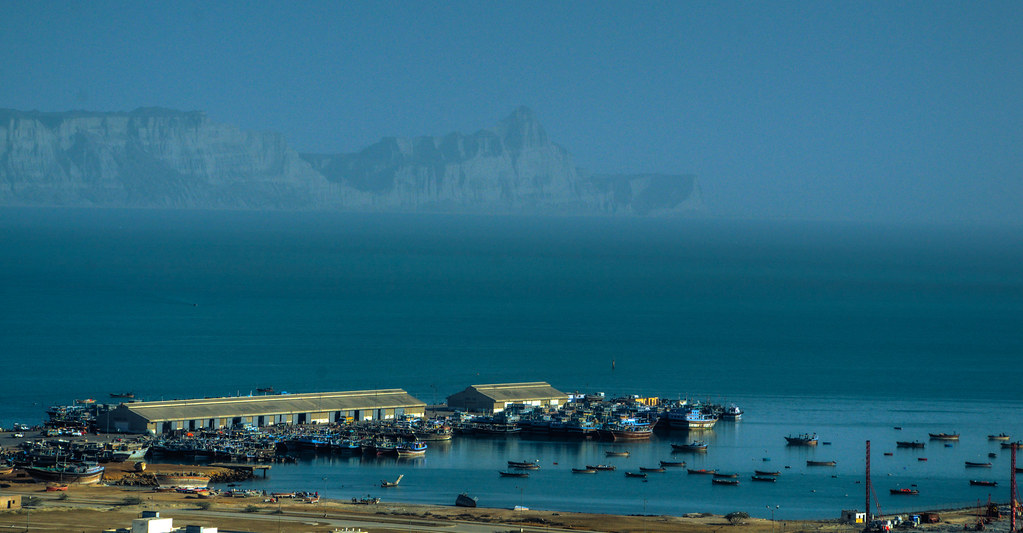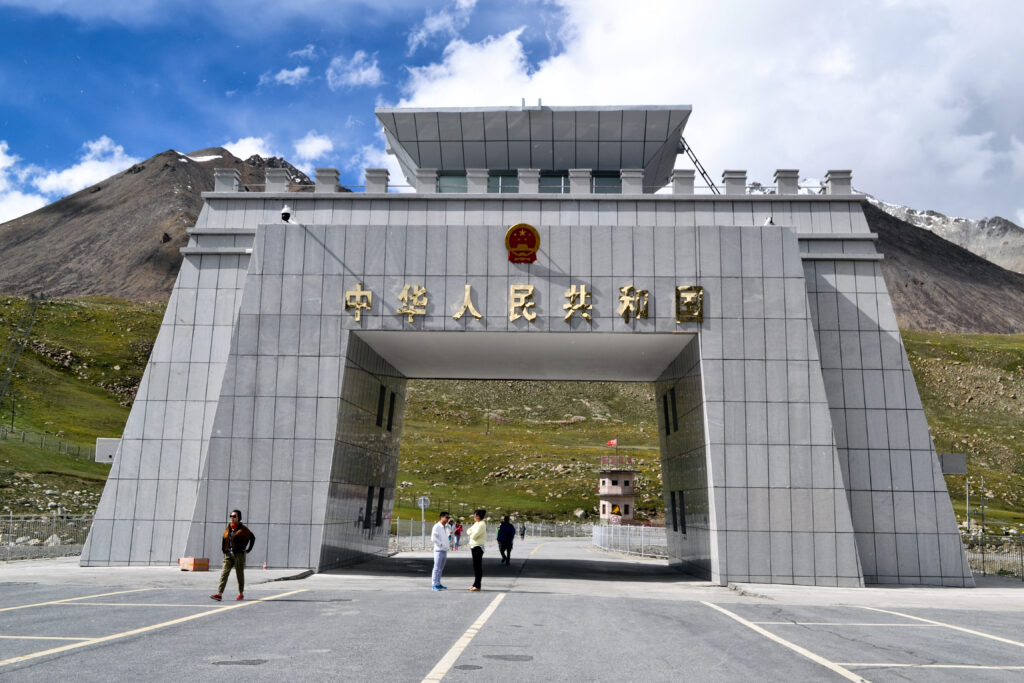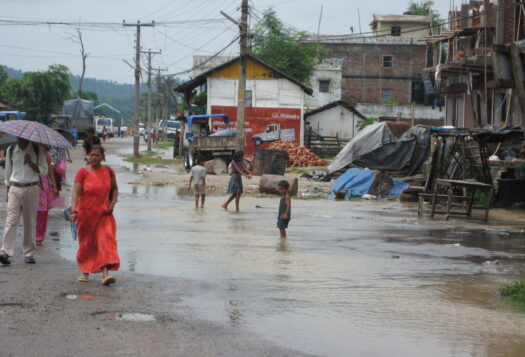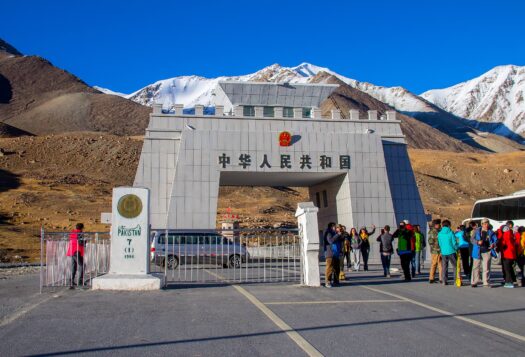
Pakistan has been experiencing one of the worst economic crises in its history. Although many factors have contributed to the country’s current economic predicament, China’s role has largely been ignored in domestic debates. Pakistan’s economic struggles have often been attributed to the International Monetary Fund (IMF), which is seen as the primary cause of the country’s financial woes. However, Pakistan’s economic crisis has also deepened because of China’s increasing involvement in its economy. Numerous Chinese loans and the China-Pakistan Economic Corridor (CPEC) contributed to Pakistan’s worsening economic crisis when the country was relieved at the eleventh hour by the IMF.
Pakistan’s Economic Crisis
As the economic situation of the country worsens, the World Bank has issued a statement warning that Pakistan’s economic stability is hanging by a thread and the economy needs immediate restructuring. Inflation has skyrocketed, with the prices of petroleum and diesel soaring, making these commodities too expensive for the common person. Electricity has also become very expensive, which has angered the citizenry. The World Bank Country Director for Pakistan, Najy Benhassine, said that Pakistan’s current economic model, which deprioritizes human development, cannot reduce poverty.
The IMF Bail-out Loans
Pakistan narrowly escaped default after soliciting a USD $3 billion stand-by arrangement with the IMF on June 29, 2023. This bailout package is just the most recent in a long history of IMF agreements that have brought Pakistan out of similar crises. The first standby arrangement between the IMF and Pakistan was in 1958. Since then, Pakistan has received 23 loan packages on various occasions totaling USD $7.4 billion.
The United States has concerns about how Pakistan will repay the growing Chinese loans, terming it a debt trap.
Although many Pakistanis consider the IMF a tool that Western powers use to dominate developing countries through neo-colonial debt regimes, it has helped developing economies avoid financial collapse. It has a long history of working with Argentina, Indonesia, Mexico, and Brazil. The most recent case of the IMF assisting a struggling economy was when Sri Lanka defaulted in April 2022, in part because of the amount of bilateral debt it owes China The IMF gave Sri Lanka a USD $3 billion loan at the time. The loan was meant to support Sri Lanka through the economic troubles following default.
Similarly, the IMF loan package saved Islamabad from immediate default and provided much-needed relief. Economic analysts argue that inflationary pressures and currency depreciation were controlled largely due to the IMF bailout package.
China’s Tightening Debt Trap
Beijing has a deep and cordial relationship with Islamabad. However, the United States has concerns about how Pakistan will repay the growing Chinese loans, terming it a debt trap. In July, Pakistan’s former Finance Minister announced that China has rolled out a USD $2.4 billion loan to help Islamabad survive one of its worst economic crises. These loans have made Pakistan’s fragile economy completely reliant on China and trapped the country in huge debt.

Pakistan’s economic reliance on China can be explained by the difference between the terms and conditions of Chinese loans compared to Pakistan’s other creditors. The first difference is that the interest rate on Chinese loans is much higher than the interest on loans from Pakistan’s other creditors. During 2019-20, the total lending to Pakistan by Paris Club Countries and China was about the same, but the interest outflow on Chinese loans was four times higher. In the past two years, Pakistan has paid out just USD $7.6 million in interest to the Paris Club, a relief due to the pandemic, while it has paid over USD $400 million to China in interest. As of now, Islamabad has borrowed more loans from Beijing than it has from any other country, a whopping USD $30 billion.
The second difference is that IMF loan packages come with conditions requiring Pakistan to reform its financial and economic sectors, unlike the loans China has handed out. This has led to Pakistan approaching China for financial assistance without hesitation. However, China has only burdened Pakistan with debt, and not helped it become a stable economy, which Pakistan believed it would. China’s white elephant projects, such as CPEC are costly and deliver very little to the country. China has also leveraged commercial lending, exploited local corruption, conducted opaque negotiations, and hesitated to restructure debt, which have all played a significant role in exacerbating Pakistan’s economic crisis.
Economic Consequences of a Failed CPEC
Pakistani leaders called CPEC a game changer for the country’s ailing economy when it began in 2014. However, after a decade, CPEC appears to be more of a disappointment than a game changer. Many projects in the China-Pakistan Economic Corridor (CPEC) that were scheduled for completion have yet to be finished. Along the way, China has become frustrated with Pakistan’s handling of CPEC projects. For instance, Pakistan’s failure to accurately calculate the benefits of these projects has led to increased expenses in foreign currency and debt burden.
The failed CPEC projects have embarrassed Pakistani leadership and made them more amenable to agreeing to Chinese deals to appease their ally.
Unnecessary expenditures have also contributed to the toll on the Pakistani economy. The Pakistani government could have bought a new signaling system for the Karachi to Peshawar railway line (ML-1) for USD $150 million rather than USD $530 million. Frustrated by the slow pace of work on the CPEC projects, the Chinese ambassador to Pakistan complained that Pakistan is destroying the CPEC. The failure of this USD $62 billion project has landed Pakistan in a very unstable position.
The failed CPEC projects have embarrassed Pakistani leadership and made them more amenable to agreeing to Chinese deals to appease their ally. This became evident when the former Pakistani Prime Minister inked six agreements with the Chinese Vice-Premier on the eve of celebrating a decade of CPEC in Islamabad in July. To further appease China, it is expected that Pakistan will ink more agreements with China and take on more loans. This will adversely impact the Pakistani economy and push the country deeper into a vicious cycle of debt.
The Way Out
The way out of the current situation is extremely difficult, given Pakistan’s track record of implementing economic reforms. Pakistan has shown a lack of commitment and consistency in implementing reforms, and those that have been implemented have suffered from governance issues. Furthermore, there is a lot of political instability in the country. The government is under caretaker leadership that does not hold a strong mandate to take decisive action on economic policy. Since China’s loan packages do not require economic and institutional reforms, Pakistan will likely become more dependent on China.
The IMF loan, which saved Pakistan from default, has postponed economic collapse. Pakistan needs to take advantage of this time and take steps to reform its entire economic and financial sector. The government should start with fiscal management, human capital development, investment promotion, export diversification, and grassroots-level institutional reforms.
Also Read: Ten Years of CPEC: A Decade of Disappointments.
***
Click here to read this article in Urdu.
Image 1: Gwadar, Pakistan the site of a major CPEC project via Flickr.
Image 2: Khunjerab Pass Monument via Wikimedia Commons.


